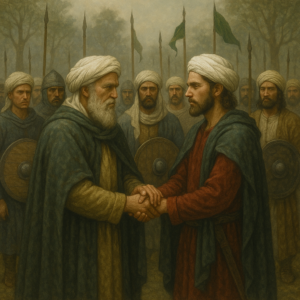Thousands ask: Can Islam be reformed?
What they fail to realize is that Islam has already undergone a reformation. It began nearly a century ago, and the Islamic terrorist organizations the world fears are the reformers.

Let me explain.
In religious history, “reformation” means that people strip away centuries of cultural overlay. To return to the core teachings, the pure source.
Just as the Protestant Reformation peeled away tradition to expose the raw biblical text. Similarly, the reformers of Islam discard centuries of jurisprudential buffering and non-Islamic influence. As they returned to the unfiltered Quran and Hadith.
This process began in earnest after 1924, when the Ottoman Caliphate, the last Islamic empire, was formally abolished.
It was for the first time in 1,300 years. That the Islamic world found itself without a central religious-political authority.
Ideologues like Hassan al-Banna, Sayyid Qutb, Abul A’la Maududi, and Abdelhamid Kishk, the so-called “reformers” rejected British and French influence and sought to revive Islam’s original political-theological structure: the caliphate.
Saudi King Faisal funded these movements, as he saw in them a powerful tool to counter the secular pan-Arabism of Gamal Abdel Nasser, and thus he unleashed them across the Arab and Muslim world.
They sparked what leaders branded the Islamic Awakening, which was a sweeping, calculated campaign. So as to revive the purest form of Islam, stripped of modernity and stripped of compromise.
Tidal wave of radicalization
The result was a tidal wave of radicalization.
Al-Qaeda, the Taliban, ISIS, Boko Haram, and 96% of global terrorist organizations emerged as the logical outcome of a reformation that returned Islam to its unfiltered, foundational texts.
What we need is to pull Islam away from reformation, not toward it. Can Islam be reformed? It must not.




